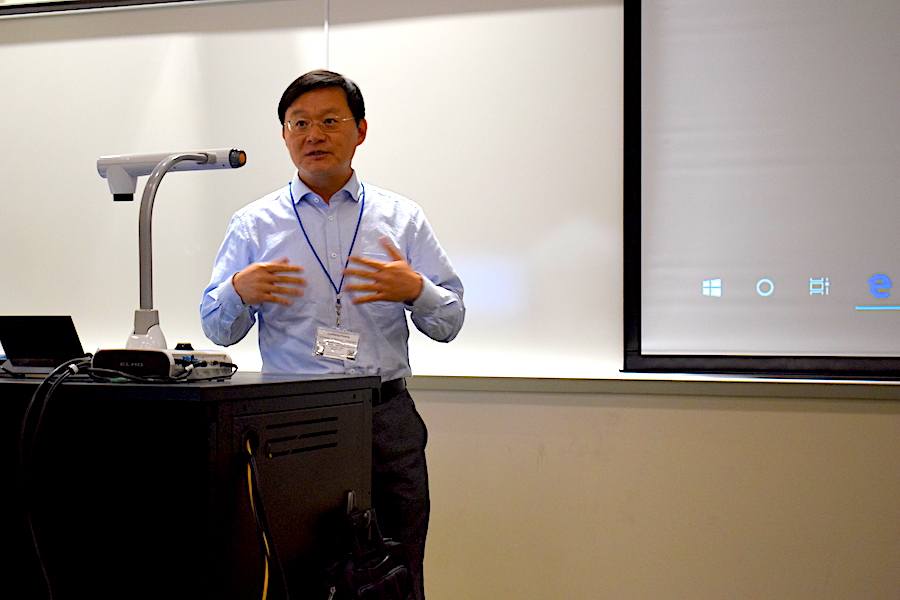June 25, 2019

MU Mechanical and Aerospace Engineering Professor Guoliang Huang was instrumental in bringing the event to Columbia, serving as the chair of the local organizing committee and as a member of the conference committee.
Mizzou Engineering, in conjunction with the National Academies of Sciences, Engineering and Medicine and the U.S. National Committee on Theoretical and Applied Mechanics, hosted the AmeriMech Symposium: Non-reciprocal and Topological Wave Phenomena in Solids and Fluids recently.
AmeriMech Symposia are renowned academic events that “are intended to promote interactions among researchers in an area of contemporary interest in the mechanics of fluids and solids.” Just three such symposia are scheduled in the U.S. this year, and this was the first of the trio to take place.
MU Mechanical and Aerospace Engineering Professor Guoliang Huang was instrumental in bringing the event to Columbia, serving as the chair of the local organizing committee and as a member of the conference committee alongside Andrew Norris from Rutgers University and Michael Haberman and Carolyn Seepersad from the University of Texas at Austin. MAE Assistant Professor Hussein Nassar, Research Assistant Professor Yangyang Chen and doctoral candidate Xiaopeng Li provided invaluable support throughout the process of planning and executing the symposium.
Mechanical systems that produce non-reciprocal wave phenomena are of significant interest from both fundamental and practical perspectives. Recently, concepts from topology in 2D materials such as graphene have been used to design topological insulators and solid structures that admit modes with uni-directional propagation constants. Whatever the mechanism, non-reciprocity will enable exciting new capabilities such as one-way wave devices, improved vibration isolation systems and improved imaging techniques. Because of these significant potential applications, non-reciprocal wave propagation has been identified by the NSF Emerging Frontiers in Research and Innovation program as a national priority for research in mechanics, funding researchers at 17 institutions to pursue transformative research in the area of non-reciprocal wave propagation over the next three years.
Leading faculty in the area of wave phenomena gave presentations over three days. The first day focused on wave propagation and phenomena, the second on propagation and wave control applications, and the third on spatial and time modulation. This edition featured presentations by faculty from more than 20 institutions across the U.S. and universities in China, Poland, Spain, Canada and South Korea.
“These events are examples of the wonderful things that happen in the world of STEM when we work together,” MU Engineering Dean Elizabeth Loboa said. “It’s also an excellent example of multi-campus collaboration that will make a national and international impact in this field.”